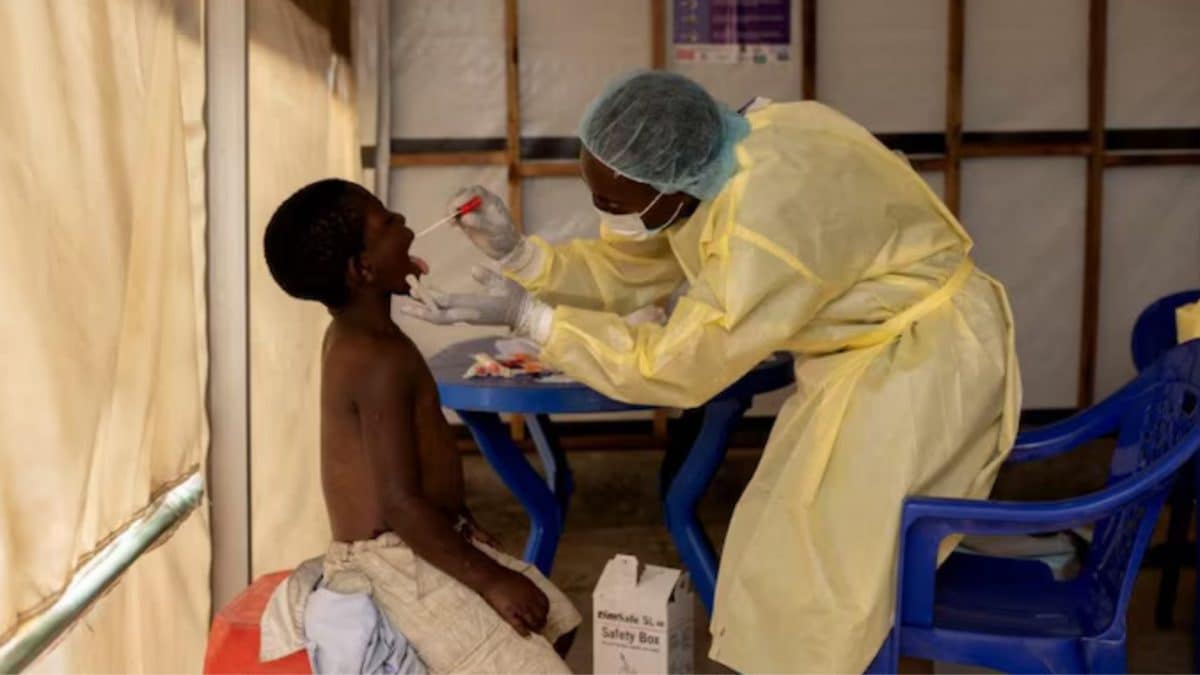The World Health Organization may have declared mpox a global health emergency last week, but the world has reacted far too slowly to the threat. The new variant of mpox has been circulating within the Congo for months. The vast central African nation has seen 96 per cent of the world’s roughly 17,000 recorded cases of mpox this year.
It has also recorded 500 deaths. Making things worse is the fact that the country, till today, does not have a single vaccine. Let’s take a closer look how the world has been slow in reacting to mpox: Origins According to Bloomberg, the current mpox crisis has its origins in the previous emergency.

In 2022, there were mpox outbreaks in more than 70 countries around the world, including the United States, which led the WHO to also declare an emergency. As per Wired, there were 92,783 confirmed cases of mpox across 116 countries, leading to 171 deaths. The 2022 global outbreak predominantly affected gay and bisexual men.
“Ninety-five percent of the cases during the 2022 outbreak were among men who have sex with men, reporting exposure through sexual or close contact with another infected person,” Boghuma Titanji, an associate professor in infectious diseases at Emory University, told Wired. “It was an outbreak that was very focused, which allowed vaccinations to be prioritised among that network.” There are two types of mpox – clade 1 and clade 2.
The 2022 outbreak was the latter. “The 2022 global outbreak was clade 2, and mortality was less than 1 percent,” Jean Nachega, a Congolese infectious disease doctor and an associate professor of medicine at the University of Pittsburgh told Wired. It was largely shut down in wealthy countries within months through the use of vaccines and treatments, but few doses were made available to Africa.
In May 2023, the WHO declared an end to mpox as a global health emergency. Bloomberg at the time quoted the Africa Centers for Disease Control and Prevention as saying that the continent didn’t get the appropriate support. Resurgence Then, earlier this year, a new and possibly more infectious strain of mpox was first detected in a mining town in eastern Congo, about 450 kilometers south of Goma.
Mahoro Faustin, who runs the Bulengo camp in the region that is effectively ground zero for a series of mpox outbreaks in Africa, said that about three months ago, administrators first started noticing people in the camp exhibiting fever, body aches and chills — symptoms that could signal malaria, measles or mpox. It’s unclear how much the new strain is to blame, but Congo is now enduring its worst outbreak yet and at least 13 African countries have recorded cases, four of them for the first time. The outbreaks in those four countries — Burundi, Kenya, Rwanda and Uganda — have been linked to Congo’s, and Doctors Without Borders said Friday that Congo’s surge “threatens a major spread of the disease” to other countries.
Salim Abdool Karim, an infectious disease expert who chairs the Africa Centers for Disease Control and Prevention’s emergency committee, said the Congo outbreak has a particularly concerning change, in that it’s disproportionately affecting young people. Children under 15 account for 70 per cent of cases and 85 per cent of all deaths in the country, the Africa CDC reported. Despite these developments, Congo did not immediately request vaccines, as per Bloomberg.
Meanwhile, drug regulators only in June gave the go-ahead for emergency use for the shots. Though countries, organisations and donors are trying to provide assistance, a joint response has only just begun. “I don’t think the world has learned that it didn’t make sense to stop the World Health Organization emergency last year,” Tulio De Oliveira, director of Stellenbosch University’s Centre for Epidemic Response and Innovation, told Bloomberg.
“If we had learned, we would have focused on stopping the outbreak.” The humanitarian crisis in eastern Congo has almost every possible complication when it comes to stopping an mpox outbreak, said Dr Chris Beyrer, director of Duke University’s Global Health Institute. That includes war, illicit mining industries that attract sex workers, transient populations near border regions, and entrenched poverty.
“This region is rich in minerals and mining sites,” Nachega told Wired . “A significant number of the workers come from these countries. They get their paycheck at the end of the month, relax with commercial sex, and then return to their country of origin to visit their family, and so spread the disease regionally.
” Millions are thought to be out of reach of medical help or advice in the conflict-torn east, where dozens of rebel groups have been fighting Congolese army forces for years over mineral-rich areas, causing a huge displacement crisis. Congo has the largest displacement camp population in Africa, and one of the largest in the world. Seven million people are internally displaced in Congo, with more than 5.
5 million of them in the country’s east, according to the UN refugee agency. Hundreds of thousands of people have been forced into overcrowded refugee camps around Goma, while more have taken refuge in the city. Beyrer said that unlike COVID-19 or HIV, there’s a good vaccine and good treatments and diagnostics for mpox, but “the access issues are worse than ever” in places like eastern Congo.
All of Congo’s 26 provinces have recorded mpox cases, according to the state-run news agency. But Health Minister Samuel-Roger Kamba said Thursday that the country doesn’t have a single vaccine dose yet and he pleaded for “vigilance in all directions from all Congolese.” Dr Rachel Maguru, who heads the multi-epidemic center at Goma’s North Kivu provincial hospital, said they also don’t have drugs or any established treatments for mpox and are relying on other experts such as dermatologists to help where they can.
A larger outbreak around the city and its numerous displacement camps already overburdened with an influx of people would be “terrible,” she said. She also noted a pivotal problem: poor and displaced people have other priorities, like earning enough money to eat and survive. Aid agencies and stretched local authorities are already wrestling with providing food, shelter and basic health care to the millions displaced, while also dealing with outbreaks of other diseases like cholera.
Unlike the 2022 global outbreak, mpox now appears to be spreading in heterosexual populations. What happens next? The WHO said the new variant could spread beyond the five African countries where it had already been detected — a timely warning that came a day before Sweden reported its first case of the new strain. Beyrer said the global community missed multiple warning signs.
“We’re paying attention to it now, but mpox has been spreading since 2017 in Congo and Nigeria,” Beyrer said, adding that experts have long been calling for vaccines to be shared with Africa, but to little effect. He said the WHO’s emergency declaration was “late in coming,” with more than a dozen countries already affected. Experts are warning that this strain of mpox could be deadly.
“Now we’re talking about a strain which can have up to 10 percent mortality,” Nachego told Wired. “It’s kind of becoming the new HIV,” Nachega told Bloomberg . “When I finished medical school, the HIV pandemic was taking off.
We don’t want to see this become another pandemic of a sexually transmitted infection. So that’s why we need to stop this clade 1 outbreak regionally before it gets to the levels of the 2022 one, which ended up going around the globe.” Bloomberg reported that though vaccination group Gavi has been holding daily meetings about the outbreak since May, the Congo government is yet to reach out to it for vaccines.
Samuel Boland, mpox incident manager for the WHO in Africa, told Bloomberg the Congo government has asked for vaccines from the US and Japan. “We are all talking to the same donors — and that’s very good news — but we need to coordinate and hopefully in the coming days there will be a coordination mechanism,” Gavi’s chief executive officer Sania Nishtar told the outlet. “What is sad here is that the vaccines are ready to go and there are certain things that are impeding these countries to have access to them,” added Javier Guzman, director of global health policy at the Center for Global Development.
Without a rapid response, the disease will spread to other countries, he warned. Science.org quoted Africa CDC Director-General Jean Kaseya as saying that today’s situation is the result of Africa not being given “appropriate assistance.
” “If we don’t deal with mpox as we need to do, we can be surprised.” With inputs from agencies.


















